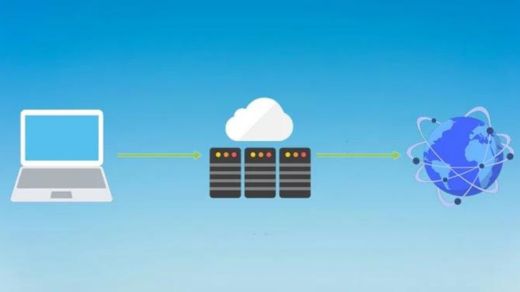A proxy server is a computer system that acts as an intermediary between a client and another server, allowing clients to make requests to other servers through the proxy. In Las Vegas, a proxy server can be used for a variety of purposes, such as to bypass restrictions, hide your IP address, and access content that is only available in specific regions.
A Las Vegas proxy server is simply a proxy server located in Las Vegas. By using a proxy server located in Las Vegas, users can access content that is only available in the city or region. For example, if you are located outside of Las Vegas and want to access a website that is only available to users in Las Vegas, you can use a Las Vegas proxy server to access the website as if you were in Las Vegas.
Another use case for a Las Vegas proxy server is to bypass restrictions. Some websites or online services may block users from certain regions or countries from accessing their content. By using a proxy server located in Las Vegas, users can bypass these restrictions and access the content as if they were located in Las Vegas.
In addition, a Las Vegas proxy server can also be used to hide your IP address. Your IP address is a unique identifier that is associated with your device and can be used to track your online activities. By using a proxy server located in Las Vegas, your IP address is replaced with the IP address of the proxy server, making it more difficult to track your online activities.
When using a Las Vegas proxy server, it’s important to choose a reputable provider to ensure the security and privacy of your online activities. It’s also important to note that using a proxy server may slow down your internet connection, depending on the server’s location and the provider’s network speed.
There are several types of proxy servers that can be used in Las Vegas, including HTTP proxies, SOCKS proxies, and VPNs. HTTP proxies are the most commonly used type of proxy server and are suitable for basic web browsing. They work by forwarding HTTP requests from clients to servers, and then forwarding the responses back to the clients.
SOCKS proxies are another type of proxy server that can handle various types of traffic, including web browsing, email, and file transfers. They are more flexible than HTTP proxies and can handle non-HTTP traffic.
VPN (Virtual Private Network) is a type of proxy server that provides a secure and encrypted connection between a client and a server. VPNs are commonly used to protect online activities from prying eyes, such as hackers, ISPs, and government surveillance. By using a VPN located in Las Vegas, users can enjoy the benefits of a Las Vegas proxy server while also maintaining privacy and security.
It’s worth noting that using a proxy server can have legal implications, depending on the intended use. For example, using a proxy server to access copyrighted content that is not available in your region may be illegal. It’s important to use a proxy server responsibly and within the bounds of the law.
In summary, a Las Vegas proxy server can be a useful tool for accessing content, bypassing restrictions, and hiding your IP address. There are several types of proxy servers available, including HTTP proxies, SOCKS proxies, and VPNs. It’s important to choose a reputable provider and use a proxy server responsibly to avoid legal implications.
In conclusion, a Las Vegas proxy server can be a useful tool for accessing content, bypassing restrictions, and hiding your IP address. However, it’s important to use a reputable provider and be aware of the potential impact on your internet connection speed.



